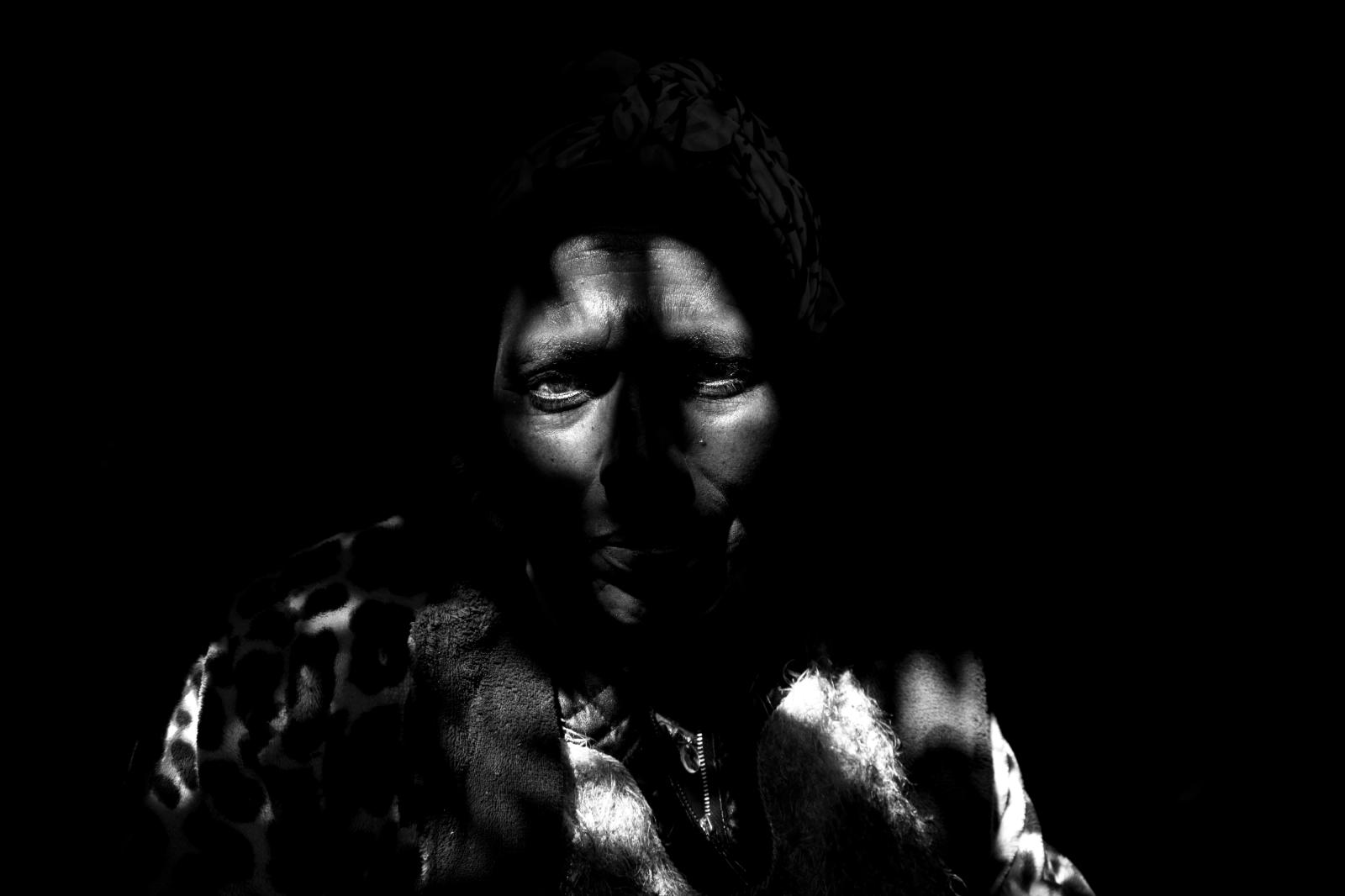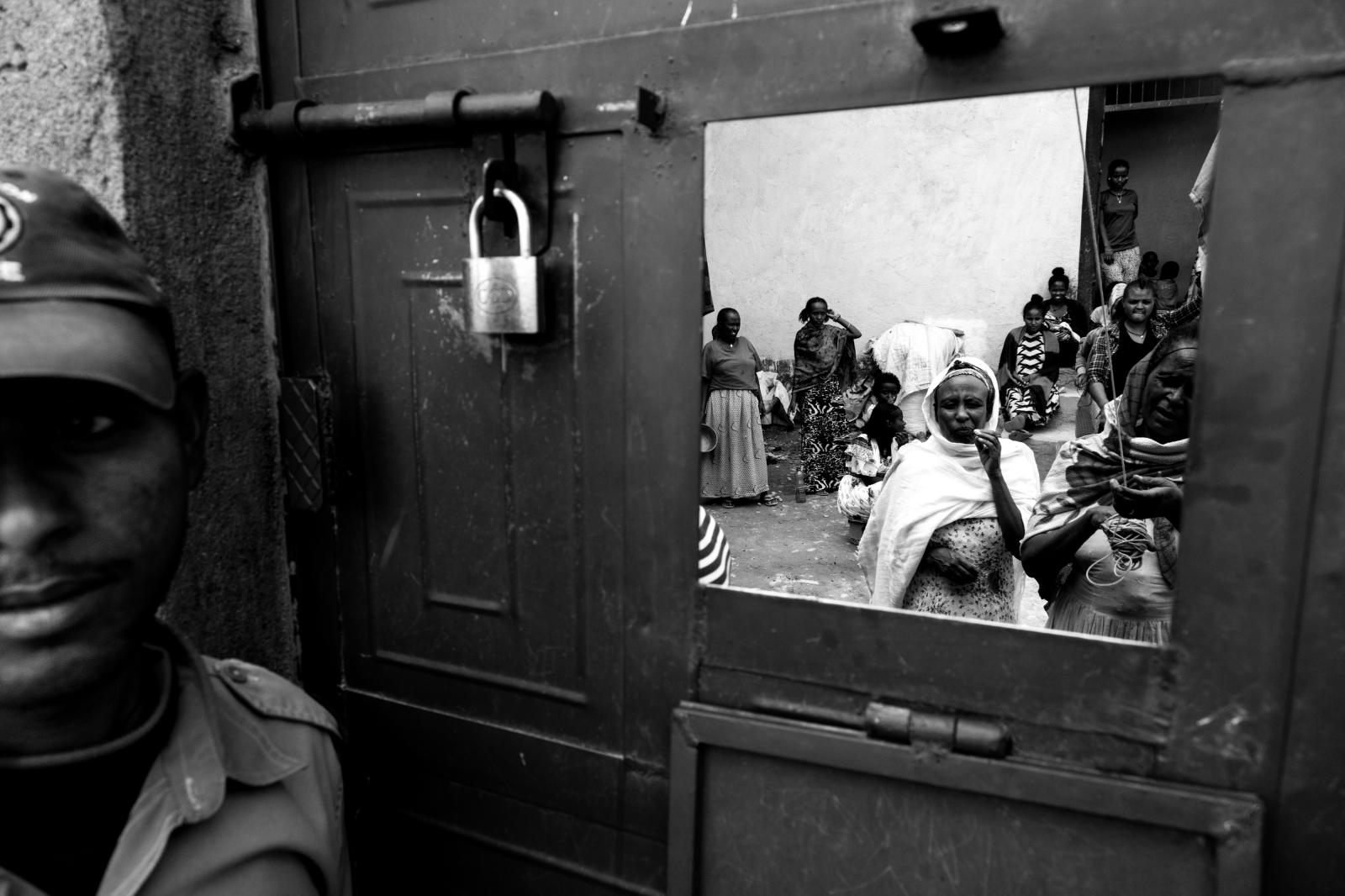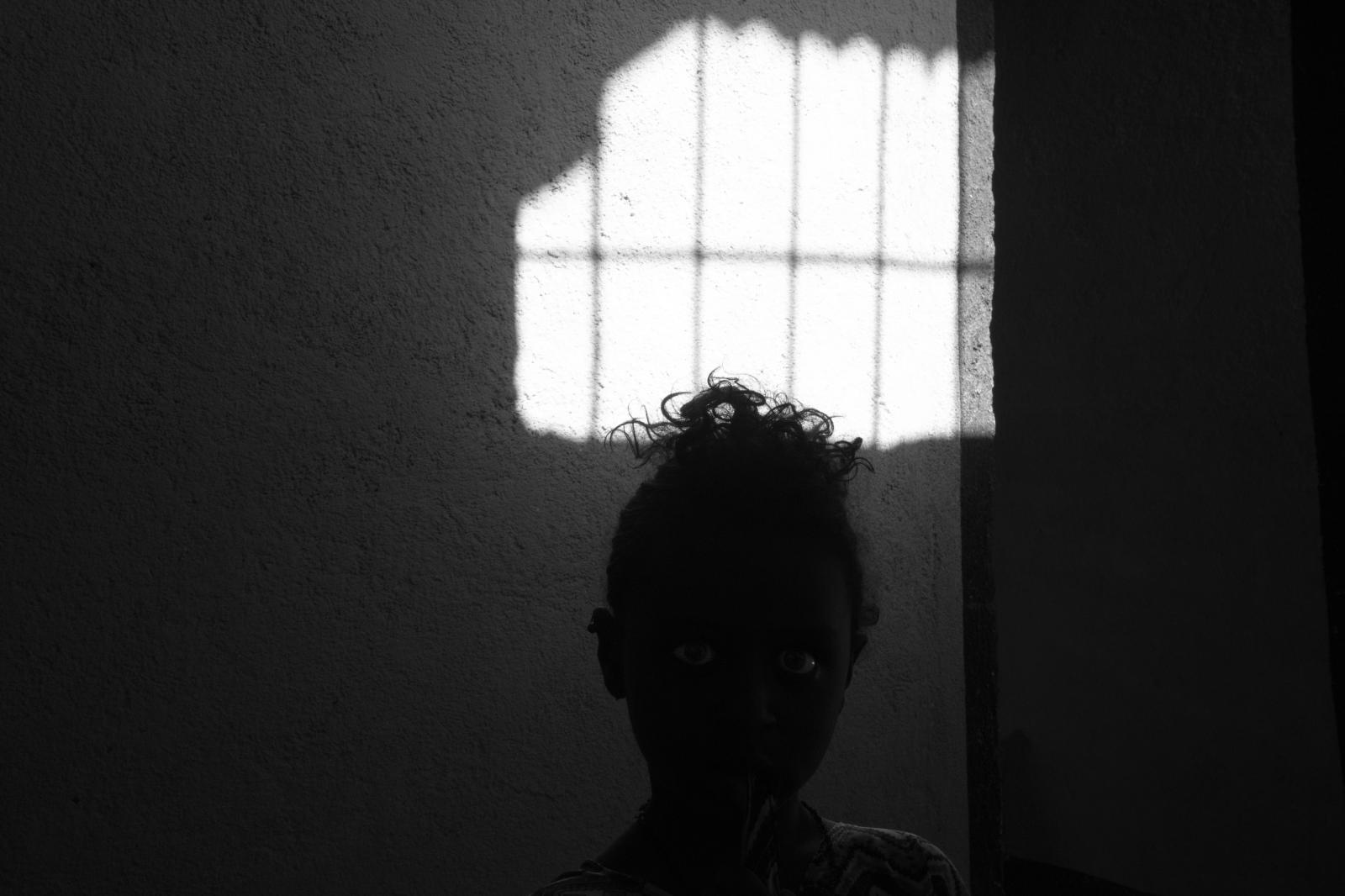The 14,9% of Ethiopia population has a criminal record and the 4,2% of it are women. Everyday the Ethiopian government pay only nine birrs (0,19$) and very little attention for their alimentation and health care.
About 500 children live with this 4,2% inside the prisons, forced to follow their mothers behind bars, without an appropriate access to education, health care or infrastructure where to play.
Azieb is 19 years old and she’s eight months pregnant. She has to serve one year and eight months for stealing a phone, she will give birth inside the prison. Georgis Z/Michael assaulted a man and she will be in prison for the next two years with her 5 years old daughter Desinet G/Meskel. Desinet has heart problems but she doesn’t get neither health care nor education. Elfnesh Agos beat up a man too. She still has four months to serve, but in the meanwhile her 6-years-old son was unable to begin his studies at the primary school.
The ones that live in the right side of the bars could be considered luckier, but 12-years-old Kubrom, and his 7-years-old sister Meherawit have found their selves lost living without their mother after her imprisonment. Kubrom left the school to look after his sister, who started dating older men. Alem Berhe, the mother of the two children, has just got off the child trafficking charges and can now join her children outside the prison, but the women lucky as Alem are very few.
She’s a message of hope for the women that everyday see their dignity trampled by a prison system incapable of considering people as human beings.
They get one meal per day and it’s always the same dish. Enjera and shirò mark the days of the women and their children, who look like wandering souls with gloomy and vitreous eyes. The deprivation of mothers’ fundamental rights are applied without reduction to their children too, scapegoat of a battle for humanity fought on the skin of the weak ones.
Prisoners Mothers directs the point of view on this piece of forget humanity while drawing the attention on this faces, left behind too many times between worn-out camp beds and stagnant water.











